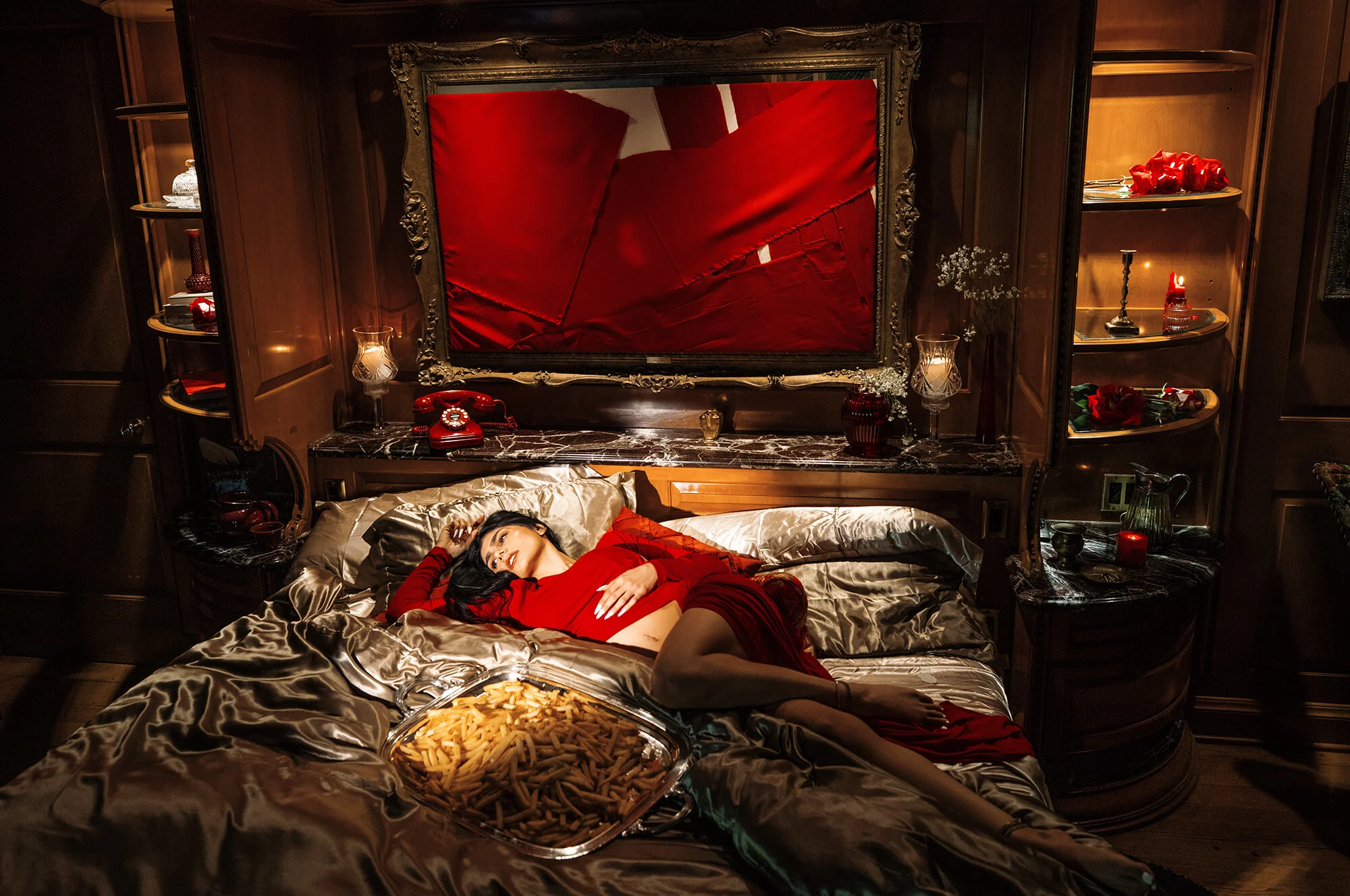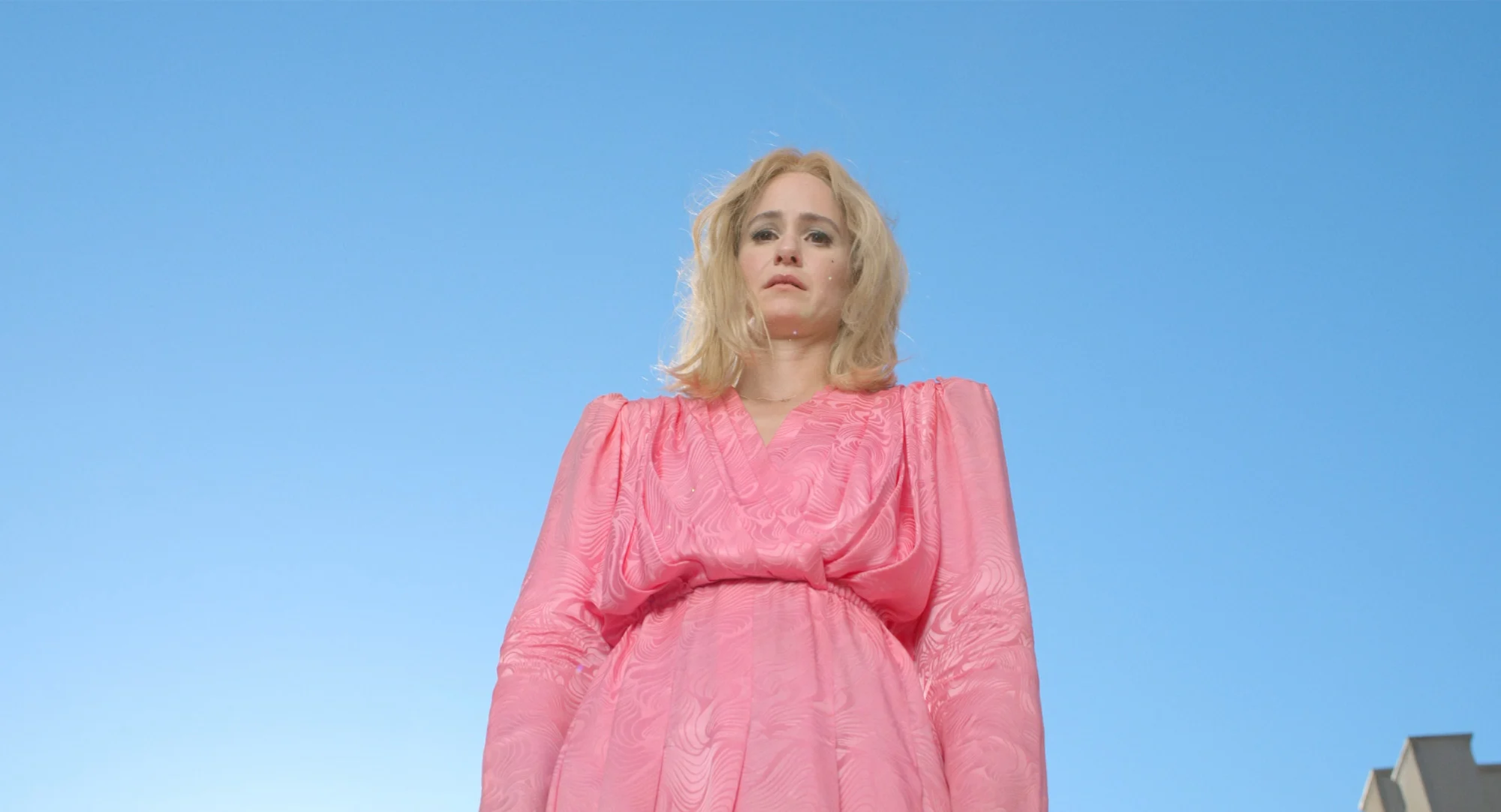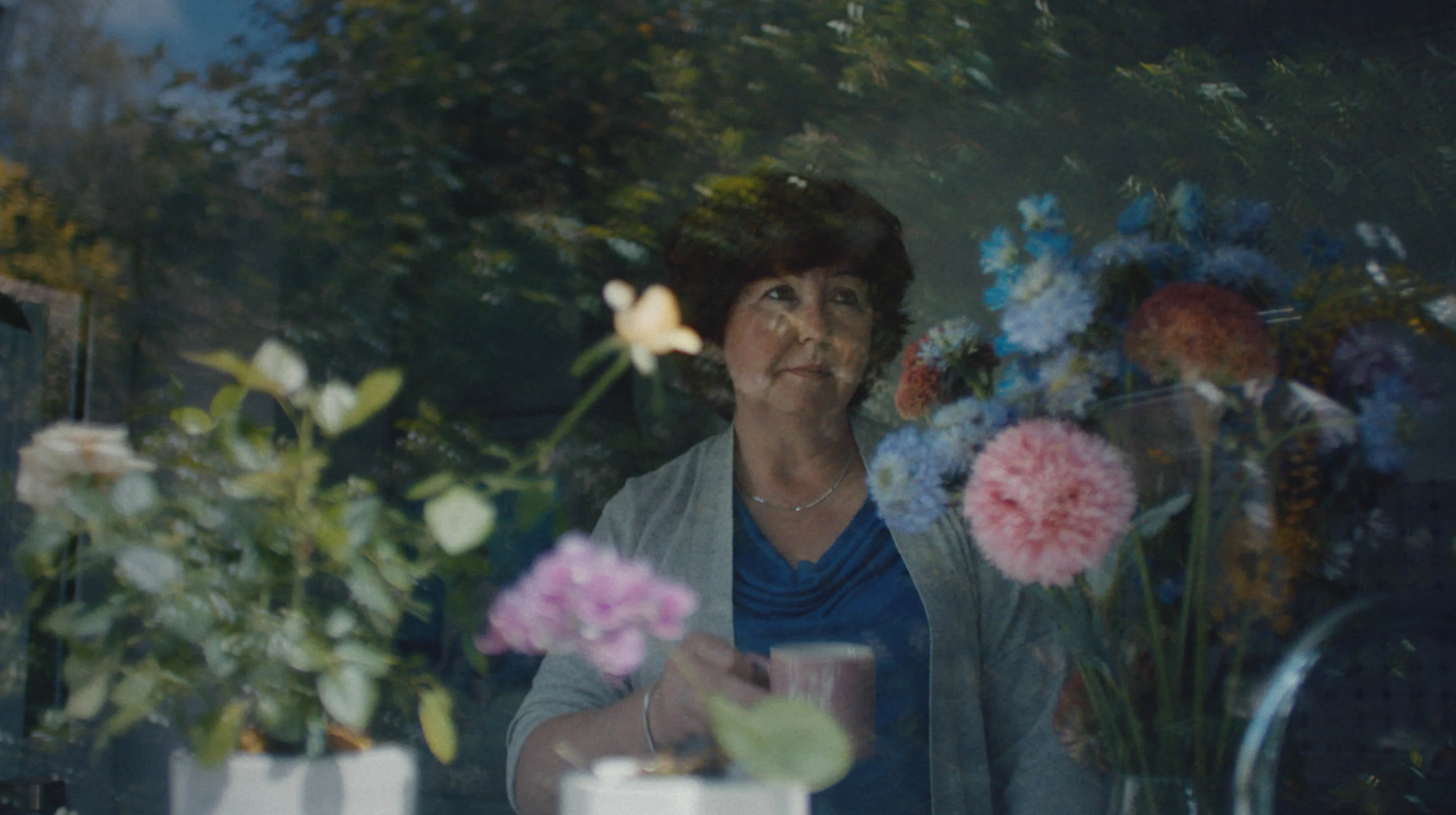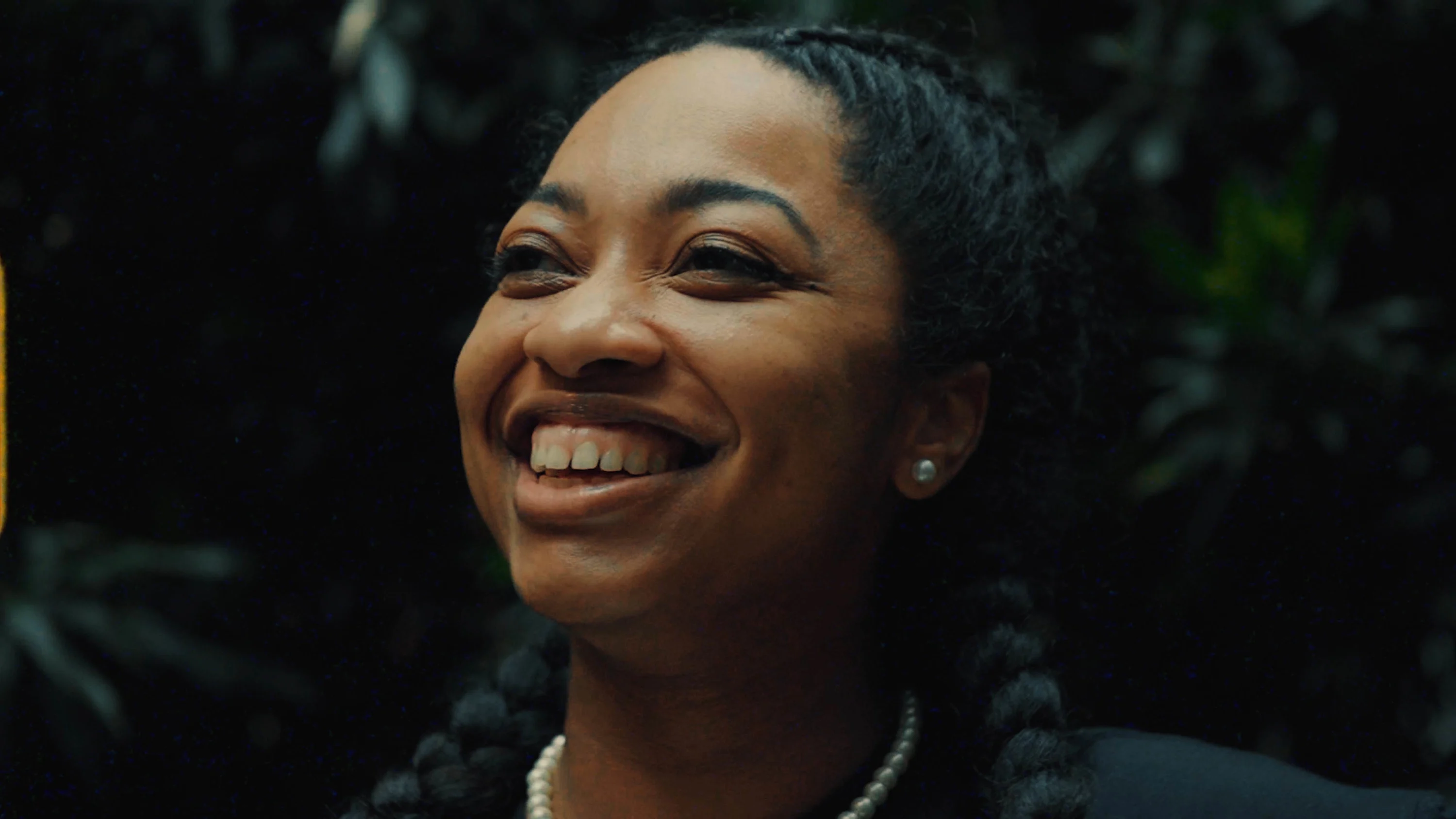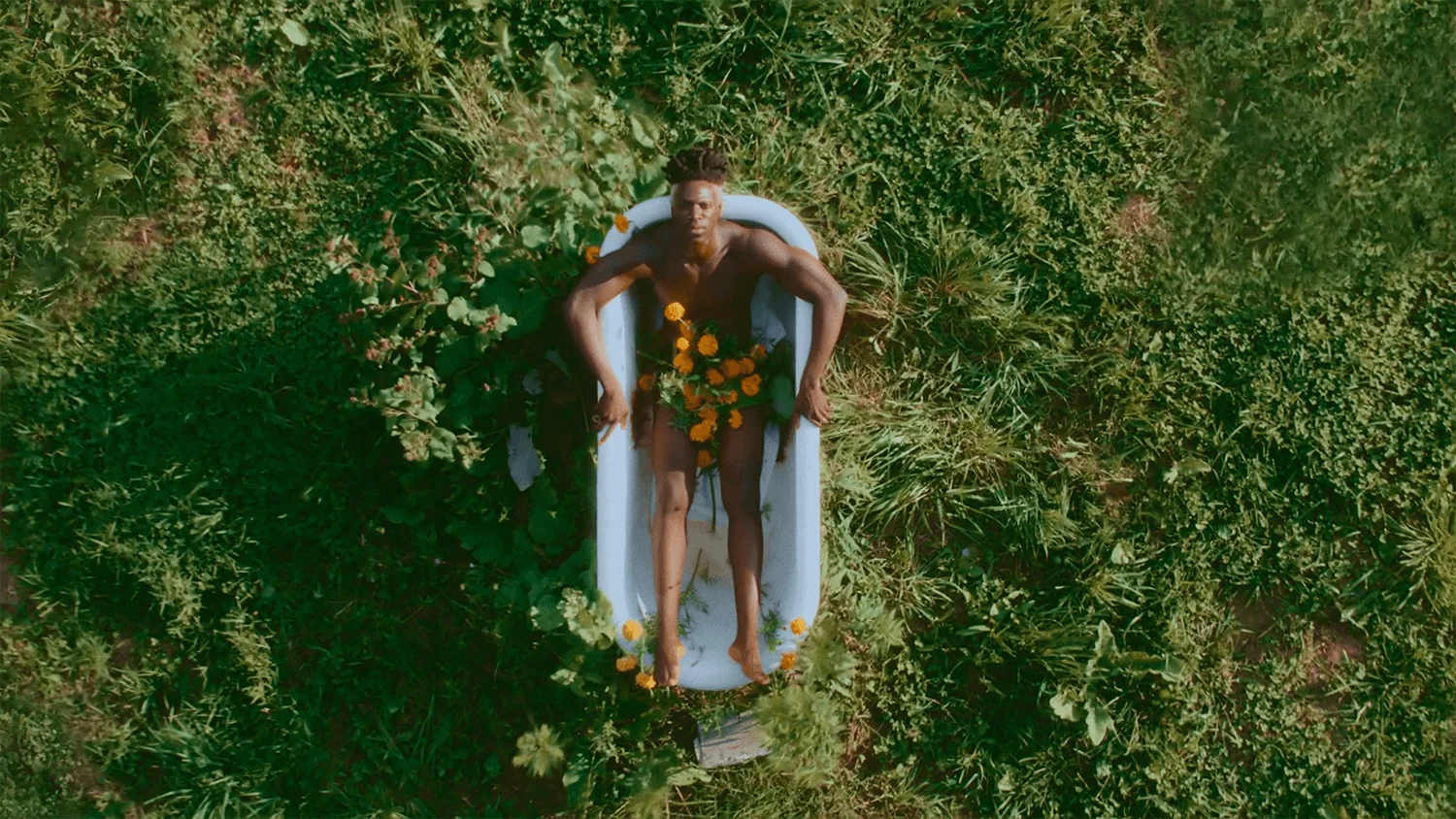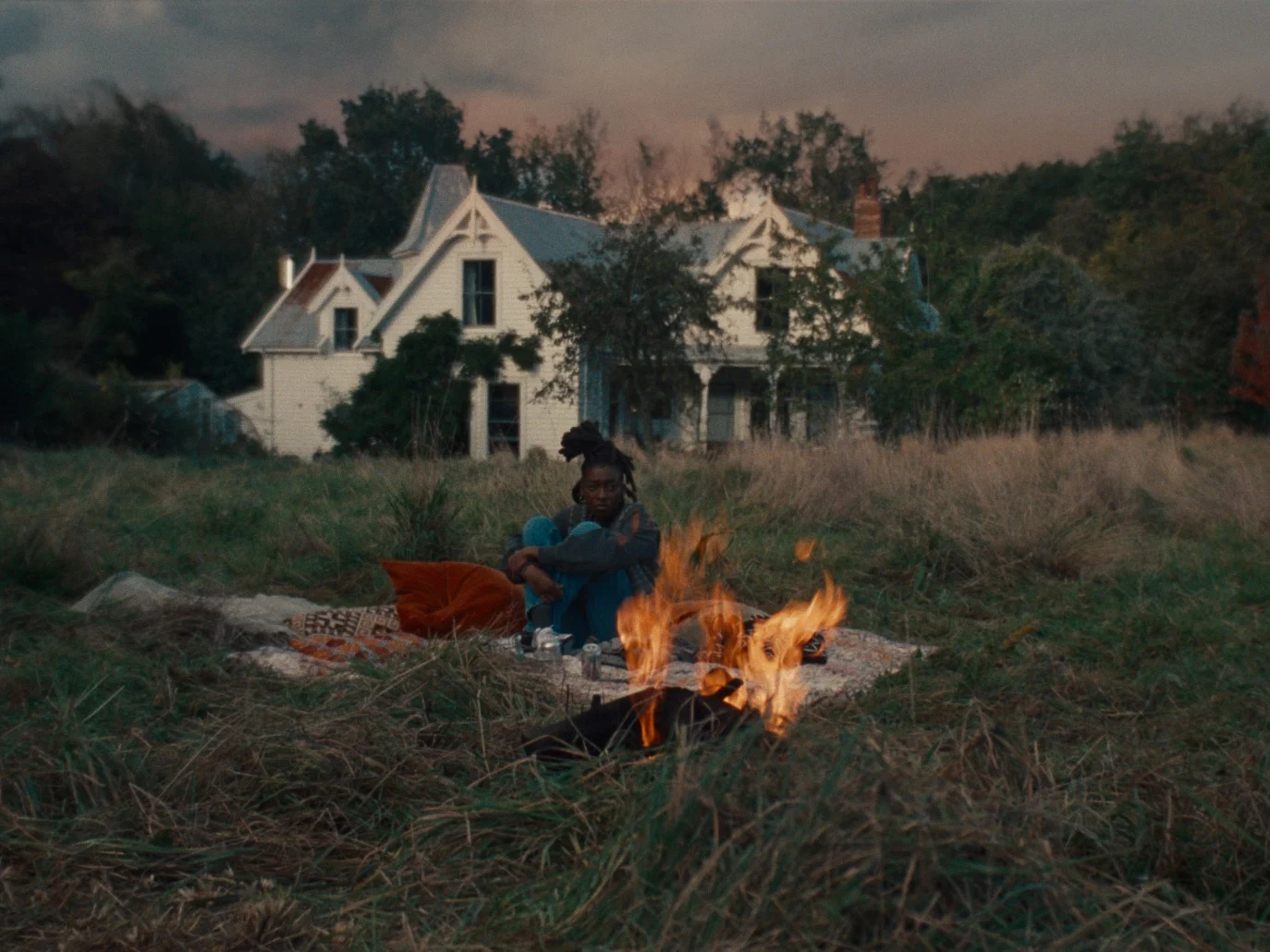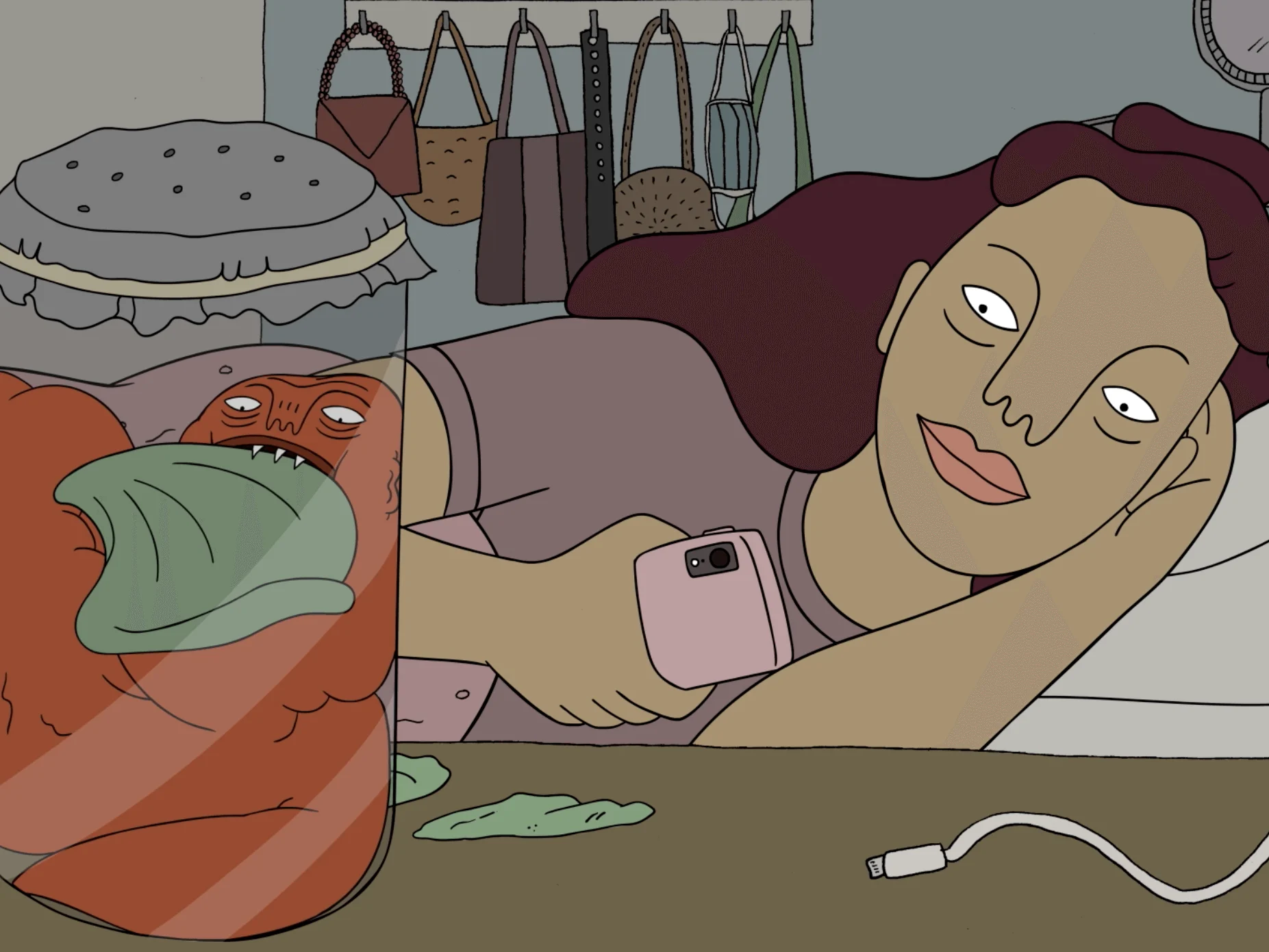

Whether through photography, theater or film, artist Myah Asha Jeffers thrives when documenting the nuances and intricacies of our everyday existence and the spider’s web of emotional complexity that goes along with it. In “Bathsheba,” her directorial debut commissioned by WePresent, that observant nature is once again at play, as she creates a deeply moving portrait of grief and longing, and pierces the armor that her protagonist tries to use to shield her true self from the world. Writer Natty Kasambala catches up with the director over a phone call from Barbados to dig deeper into the motivations behind her move into film.
In a biblical context, Bathsheba is the name of a fatal temptress. Wreaking havoc on the lives of the men in her orbit, including King David, her allure proves to be as dangerous as it is irresistible. The beach of the same name in Barbados holds a similar paradox, its breathtaking beauty and otherworldly rock formations dampened only by the deadliness of its choppy waves.
Despite, and maybe because of this, it’s artist Myah Asha Jeffers’ favorite place in the world and the opener of her directorial debut, also titled “Bathsheba.” Centered around a property guardian who’s stuck in limbo after a life-changing loss, the photographer, dramaturg and now filmmaker was drawn to this idea of change as a terrifying kind of force: “I thought of this other character that’s going to enter her life and perhaps create a bit of a whirlwind, act as a hurricane to force [her] to overcome, or at least reckon with, her grief,” Jeffers says.

The self-described “London-based, Bajan-spirited” artist has long been inspired by her experiences growing up between the capital and the island. Her work spotlights the stories, nuances and daily lives of those within the diaspora, starting from the first time she picked up a camera at the age of ten. “My parents were amateur photographers. My mom, still to this day, is an absolute happy snapper,” Jeffers says, recalling the frustration at not being able to run around a park or blow out a birthday candle without a blinding flash going off in her face. “But looking back, it’s an incredible archive of our life, and I think that’s what spurred my desire to document.”
Going on to study English at university, it wasn’t until Jeffers took a theater module that the power of storytelling fully clicked into place for her. She started writing and performing her own plays, though “luckily there’s no evidence [of them] because they were terrible,” she says, laughing. For years, she worked as a dramaturg for the likes of Talawa Theatre Company and Royal Court Theatre, alongside her freelance photography career. In 2020, when she was furloughed during the COVID-19 lockdown, she realized she had to take a leap and she quit her full-time job to explore her own creative pursuits. Not long after that, she began writing “Bathsheba.”

In it, we find Angel in a space that feels stagnant and derelict—physically and emotionally. The story unfolds as her stasis is unsettled by the threat of a vindictive property manager and the arrival of bright, new neighbor Bathsheba (or Bash, for short). Angel must discover if this stranger can be a lifeline when she needs it the most. Told with bracing care, the film is a tender inquiry into the potential of just a flicker of connection to cut through even the thickest cloud of isolation.
A property guardian herself for the last five years, Jeffers was struck by her own experiences within this precarious housing system, as well as that of those around her. Even the property manager is loosely informed by her own in real life—he has the keys to her house and isn’t shy to let himself in if you haven’t made it to the door fast enough for his liking, for example.

How can she have a sense of home when it’s been completely ripped from her?
One neighbor in particular, Bibi, an older woman in her eighties, became a tea companion when Myah first moved into her studio and was the catalyst for questions Jeffers started to ask. Namely, what does it mean to find yourself in unstable accommodation in later life, when you’re no longer as flexible against the volatility and hostility of the London housing crisis? Initially the idea looked like a photo project, but before long the film narrative was too strong to ignore. “The character of Angel was slowly beginning to build in my head without even realizing,” she says. In a meeting with director Henry Blake, who would later become one of the film’s executive producers, Jeffers soft-pitched the world of “Bathsheba,” after which she felt encouraged to unravel it further.
Angel, with her name a subtle nod to the softness and dignity of a “guardian angel,” is a woman frozen in a reality suspended: the remnants of a former life scattered around her room, picture frames staring back at her, programmes for headline orchestral shows and an old cello case that taunts. Played deftly by Cecilia Noble, you find yourself holding your breath right along with her, as she tries to move through the world undetected. “Where Angel is currently, her house and the dilapidation of it, is very much a representation of perhaps the dilapidation of her sense of self, living in a country that isn’t offering her what she needs,” Jeffers says. “How can she have a sense of home when it’s been completely ripped from her?”


I think it’s really rare to see older, queer Black women centered.
Enter Bash, played by Tumi Fani-Kayode. In their first encounter, speaking through their literal reflections in the bathroom, she’s everything Angel is not in that moment—youthful, friendly, open. But when she hears the familiar sound of a cello, it’s clear they’re even more connected than they might seem. Whether she symbolizes aspects of a younger Angel or her late partner, there’s a magnetic pull that also feels like a raw nerve exposed. “We hold mirrors up to each other, don’t we?” Jeffers asks. The intergenerational connection feels like a rare but precious portrayal to see in film. “I think queerness sometimes on screen is so sexy and hot and everyone’s young and I just wanted to show a different side to that… More specifically, I think it’s really rare to see older, queer Black women centered.”
Jeffers’ road to filmmaking has been unique, but the art of it sits neatly at the intersection of all of her great loves—of photography, of theater, and of connecting with people and understanding their stories. “I don’t drink or smoke, but stepping on that set was like the most incredible, natural high of all time,” Jeffers says. “As a debut director, you’re often the least experienced person in the room and that’s always a great thing, because you can build off of everyone’s incredible experience and thoughts and ideas.” The biggest challenge became the greatest reward, too, which was figuring out how to communicate and then craft the most ephemeral of feelings. “It’s a very technical and logical process, so I needed to find ways to transpose these intangible concepts into [that] framework.”
The resulting portrait in “Bathsheba” is intimate and textured, laying bare some of our most invisible moments in grief: the replaying of a final voice note, a thread of unanswered texts, a life contained in taped-up boxes yet to be sorted through, the mess of what gets left behind. It’s a subject that has always fascinated Jeffers, who is currently working on a photography project documenting funerals. “There’s something so potent and transformative about the experience of it,” she says. The intricacies she weaves in are partly a product of her own encounters with loss, embedded into the story as an homage to her own lost loved ones in the process.

You’re able to experience a person or a feeling or a scenario in a completely different way when color isn’t there.
For a film with music at its core, “Bathsheba” is just as intentional in its silence. The art of crafting the most specific quiet was crucial for Jeffers. She and sound designer Jules Woods kept coming back to the question, “how can we capture the essence of a room just as someone has left it?” Jeffers says. “We consume so much sound without even realizing it, so I wanted to find ways to document stillness as delicately and precisely as I could.” Ultimately that came down to details as minute as the fluttering of curtains or the creak of a floorboard, the dripping of a tap and even “the static sound of air.” The cello served as a perfect foil to that, Jeffers explains, “it’s the closest instrument to the human voice. So I started playing around with this idea of the cello acting as a character in itself, and having dialogue through the music… acting as a sort of voice, as a narrator perhaps.”
The color story, too, shows similar restraint; shot in stark black and white, the piece sits in comfortable conversation with a lot of Jeffers’ photographic work already: “Black and white photography is basically why I am the photographer that I am today,” she says, with a smile. Giving the sense that all the color has been drained from Angel’s life, the film speaks purely through textures and shades. “It’s so abstract,” Jeffers says. “You’re able to experience a person or a feeling or a scenario in a completely different way when color isn’t there, because you’re having to look even closer and really engage with the work.”
When people do just that, squinting in the dark, Jeffers hopes they’ll find that glimmer of hope at the core of this film. There’s a profound kind of chain reaction at play in Angel’s choice to finally allow herself to be witnessed in all her vulnerability. Set against the backdrop of crises that are both personal and political, emotional and financial, it serves as a spark to remind us all how we might connect more with each other when circumstances become hostile, as they are rapidly becoming. “I think that’s the driving force of my life,” says Jeffers. “How can we all just be empathetic and understand each other and see each other? Because it’s so easy to pretend and perform and construct all of these armors. Actually, the most brave thing you can do is to be seen.”


